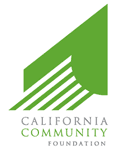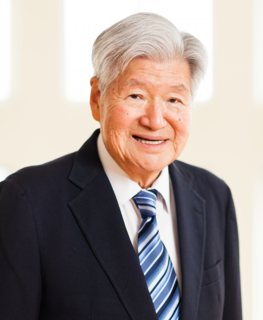Related Research Articles
Philanthropy consists of "private initiatives, for the public good, focusing on quality of life". Philanthropy contrasts with business initiatives, which are private initiatives for private good, focusing on material gain; and with government endeavors, which are public initiatives for public good, e.g., focusing on provision of public services. A person who practices philanthropy is a philanthropist.

A donation is a gift for charity, humanitarian aid, or to benefit a cause. A donation may take various forms, including money, alms, services, or goods such as clothing, toys, food, or vehicles. A donation may satisfy medical needs such as blood or organs for transplant.

The Philanthropy Roundtable is a nonprofit organization that advises conservative philanthropists.
In the United States, a donor-advised fund is a charitable giving vehicle administered by a public charity created to manage charitable donations on behalf of organizations, families, or individuals. To participate in a donor-advised fund, a donating individual or organization opens an account in the fund and deposits cash, securities, or other financial instruments. They surrender ownership of anything they put in the fund, but retain advisory privileges over how their account is invested, and how it distributes money to charities.
Community foundations (CFs) are instruments of civil society designed to pool donations into a coordinated investment and grant making facility dedicated primarily to the social improvement of a given place. Community foundations are a global phenomenon with 1700 existing around the world, of which over 700 are in the United States. Private foundations are typically endowed by an individual or a single family.

The California Community Foundation(CCF) is a philanthropic organization located in Los Angeles, California. Foundation Center, an independent nonprofit organization, ranks it among the top 100 foundations in the nation by asset size and total giving. Among all community foundations, CCF is 5th by total giving and 7th by asset size, as of the fiscal year that ended 6/30/12.

The practice of charity is the voluntary giving of help to those in need, as a humanitarian act. There are a number of philosophies about charity, often associated with religion. Effective altruism is the use of evidence and reasoning to determine the most effective ways to help others.
Rockefeller Philanthropy Advisors (RPA) is a 501(c)(3) nonprofit organization that currently advises on and manages more than $200 million in annual charitable giving. Its headquarters are in New York City, with offices in Chicago, Los Angeles and San Francisco.
Until 1969, the term private foundation was not defined in the United States Internal Revenue Code. Since then, every U.S. charity that qualifies under Section 501(c)(3) of the Internal Revenue Service Code as tax-exempt is a "private foundation" unless it demonstrates to the IRS that it falls into another category such as public charity. Unlike nonprofit corporations classified as a public charity, private foundations in the United States are generally subject to a 1% or 2% excise tax or endowment tax on any net investment income.

New Philanthropy Capital (NPC) is a charitable organisation based in London, United Kingdom. It describes itself as "the think tank and consultancy for the social sector." NPC aims to help charities, foundations, philanthropists, impact investors, social enterprises, corporates, and the public sector to maximise social impact in the lives of the people they serve.
The Commission on Private Philanthropy and Public Needs, better known as the Filer Commission, was formed in 1973 to study philanthropy, the role of the private sector in American society, and then to recommend measures to increase voluntary giving. Organized as a privately supported citizen's board, the Commission came into being through the efforts of John D. Rockefeller III, Wilbur D. Mills, George P. Shultz, and William E. Simon. The selection of participants on the Commission reflected a desire for diversity of experience and opinions and included heads of religious and labor groups, former cabinet secretaries, corporate and fd Foreign Securities Corporation and President of Metropolitan Museum of Art.
- Edwin D. Etherington, Former President of Wesleyan University and Trustee of Alfred P. Sloan Foundation.
- Bayard Ewing, Tillinghast, Collins and Graham and Vice Chairman of United Way of America.
- Frances Tarlton Farenthold, Past Chairperson of National Women's Political Caucus.
- Max M. Fisher, Chairman of United Brands Company and Honorary Chairman of United Foundations.
- Reverend Raymond J. Gallagher, Bishop of Lafayette-in-Indiana.
- Earl G. Graves, Publisher of Black Enterprise and Commissioner of Boy Scouts of America.
- Paul R. Haas, President and Chairman of Corpus Christi Oil and Gas Company and Trustee of Paul and Mary Haas Foundation.
- Walter A. Haas Jr., Chairman of Levi Strauss and Company and Trustee of the Ford Foundation.
- Philip M. Klutznick, Klutznick Investments and Chairman of Research and Policy Committee and Trustee of Committee for Economic Development.
- Ralph Lazarus, Chairman of Federated Department Stores, Inc. and Former National Chairman of United Way of America.
- Herbert E. Longenecker, President Emeritus of Tulane University and Director of United Student Aid Funds.
- Elizabeth J. McCormack, Special Assistant to the President of Rockefeller Brothers Fund, Inc.
- Walter J. McNerney, President of Blue Cross Association.
- William H. Morton, Trustee of Dartmouth College.
- John M. Musser, President and Director of General Service Foundation.
- Jon O. Newman, Judge, U.S. District Court and Chairman of Hartford Institute of Criminal and Social Justice.
- Graciela Olivarez, State Planning Officer and Director of Council on Foundations, Inc.
- Alan Pifer, President of Carnegie Corporation of New York.
- George Romney, Chairman of the National Center for Voluntary Action.
- William Matson Roth, Regent of University of California and Chairman of San Francisco Museum of Art.
- Althea T. L. Simmons, Director for Education Programs of the NAACP Special Contribution Fund.
- Reverend Leon H. Sullivan, Pastor of Zion Baptist Church, Philadelphia.
- David B. Truman, President of Mount Holyoke College.
National Philanthropic Trust(NPT) is an American independent public charity that provides philanthropic expertise to donors, foundations and financial institutions. NPT ranks among the largest grantmaking institutions in the United States.
UK Community Foundations (UKCF) is a registered charity that leads a movement of community foundations committed to positive social change in the UK through the development of “community philanthropy”. Community philanthropy involves people from all parts of a community working together locally to use the financial and other resources available to them to improve others’ lives.
Global Philanthropy Group is a consulting firm that provides philanthropic services for high-net-worth individuals, charitable foundations and corporations. Their clients include John Legend, Avril Lavigne, Madonna, Tegan and Sara, Miley Cyrus, Eva Longoria, Gucci, Task Rabbit and Tory Burch. They have offices in Los Angeles and New York.

Philanthropy has played a major role in American history, from the Puritans of early Massachusetts who founded Harvard College, down to the present day. Since the late 19th century philanthropy has been a major source of income for religion, medicine and health care, fine arts and performing arts, as well as educational institutions.

Cyrus Tang was a Chinese American businessman and philanthropist who had holdings across a wide array of industries, including steel, aluminum, technology, and life sciences.
In philanthropy, donor intent is the purpose, sometimes publicly expressed, for which a philanthropist intends a charitable gift or bequest. Donor intent is most often expressed in gift restrictions, terms, or agreements between a donor and donee, but it may also be expressed separately in the words, actions, beliefs, and giving practices of a philanthropist. Donor intent is protected in American law regarding charitable trusts, and trustees' primary fiduciary obligation is to carry out a donor's wishes.
Peter deCourcy Hero was an American foundation and college president. He was also the founder and principal of The Hero Group.
The M.J. Murdock Charitable Trust is a private, non-profit foundation based in Vancouver, Washington.
References
- ↑ Deparle, Jason (May 29, 2005). "Goals Reached, Donor on Right Closes Up Shop". New York Times. Retrieved 17 December 2015.
- 1 2 Anheier, Helmut K.; Toepler, Stefan (2009). International Encyclopedia of Civil Society. Springer Science & Business Media. p. 1023. ISBN 9780387939964.